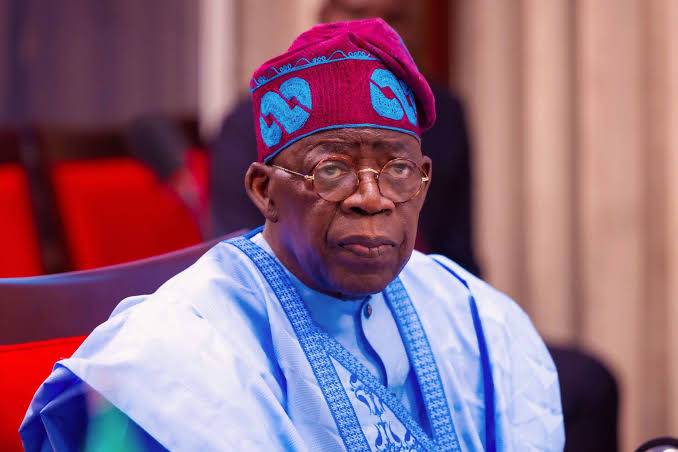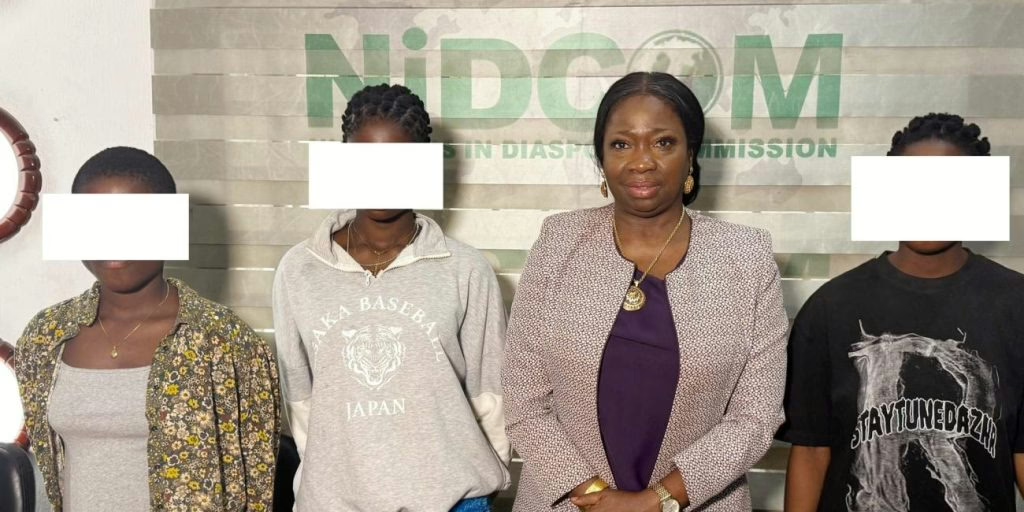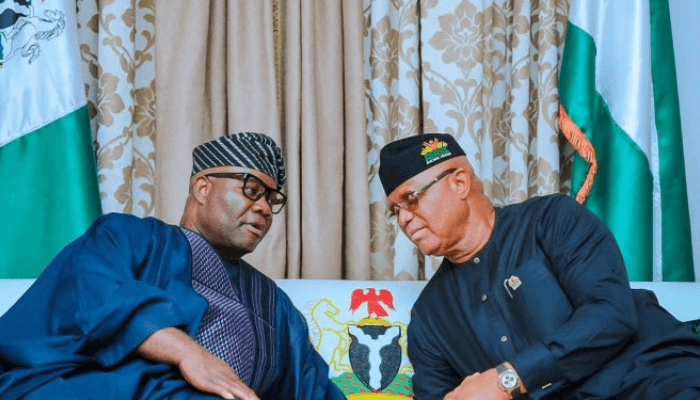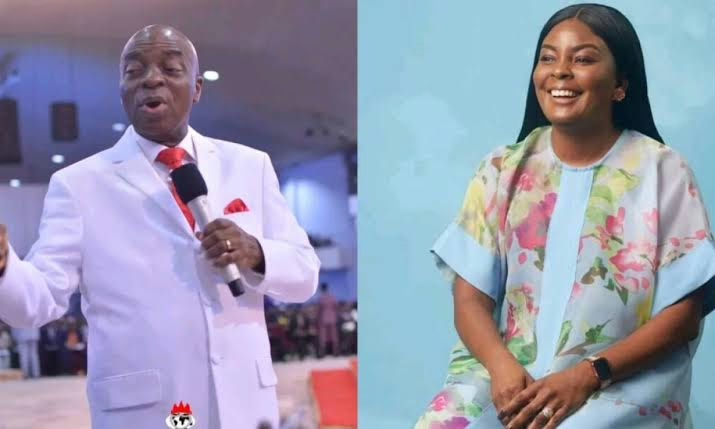Barring any last-minute change of plan, President Bola Tinubu is set to appoint Olanipekun Olukoyede as the substantive chairperson of the Economic and Financial Crimes Commission (EFCC), a move that is bound to set off controversy over the candidate’s qualification for the job.
Mr Olukoyede, a lawyer, had served as secretary of the anti-graft agency for two years during the reign of Ibrahim Magu as the acting chair of the commission. He, along with Mr Magu, was suspended from office by President Muhammadu Buhari in 2020 and was never recalled.
Before his secretary role, Mr Olukoyede had served as Mr Magu’s chief of staff.
“President Tinubu has chosen Olanipekun Olukoyede for appointment as substantive chairman of the EFCC,” a top presidency source familiar with the development but not permitted to discuss it ahead of the official announcement, told PREMIUM TIMES.
Also confirming the development, another source hinted that Mr Olukoyede’s appointment, which requires Senate confirmation, would be made public “very soon”.
President Tinubu, in June this year, suspended Abdulrasheed Bawa as EFCC chair, and in his place, appointed Abdulkarim Chukkol, then director of operations, in an acting capacity.
Mr Bawa’s suspension, anchored on “weighty allegations of abuse of office levelled against him” followed a conventional pattern of unceremonious removal of past EFCC bosses
This newspaper had chronicled how leadership succession at the two-decade-old EFCC had been steeped in controversies concerning allegations of fraud.
For four months now, Mr Bawa has been in detention at the State Security Service (SSS) after he honoured the agency’s invitation for interrogation regarding the corruption allegation.
There are speculations that Mr Bawa has agreed to officially resign from office.
Who is Olanipekun Olukoyede?
Mr Olukoyede, who hails from Ekiti State, South-west Nigeria, was born in Ikere-Ekiti on 14 October 1969. He will therefore clock 54 on 14 October.
Former President Muhammadu Buhari nominated Mr Olukoyede as Secretary to EFCC in 2018.
Subsequently, the Nigerian Senate confirmed his appointment in November 2018, to replace Emmanuel Aremo, whose five-year tenure ended in July of 2018.
But, Mr Olukoyede’s confirmation as EFCC scribe came with controversy, as a senator, Isa Misau accused the Chairman of the Senate Committee on Anti-Corruption and Financial Crimes, Chukwuka Utazi, of sidelining some members of the senators in preparing the committee’s report which cleared Mr Olukoyede for the job.
He had worked as a lawyer at the law firm of former Vice President Yemi Osinbajo before he clinched the EFCC job.
Mr Olukoyede is a seasoned lawyer with expertise in compliance management, corporate intelligence and fraud management.
He is a certified fraud examiner who has led investigations and civil litigation of fraud and financial crimes in International development projects.
He equally specialises in anti-corruption research and analysis, corporate and business intelligence gathering and processing.
He is a member of the Fraud Advisory Panel (UK), and also a member, of the Federal Government Technical Committee on the Repositioning of the Nigerian Financial Intelligence Unit.
Controversy: Is Mr Olukoyede qualified to head the EFCC
If Mr Olukoyede’s nomination sails through, he will be the first Nigerian from the South of the country to lead the anti-corruption agency.
From the pioneer chair of the EFCC, Nuhu Ribadu who is now the National Security Adviser (NSA) to President Tinubu, to Farida Waziri, Ibrahim Lamorde, and Abdulrasheed Bawa, all substantive chairpersons of the commission, and even acting chairpersons, have always been from the Northern region.
However, there are concerns that Mr Olukoyede, who is being considered for the job and touted to likely break the trend of having northerners as the chair of the commission, may not be qualified for the job. There are statutory requirements for the appointment of the EFCC boss which Mr Olukoyede may not meet.
Section 2(3) of the EFCC Act, 2005, stipulates that a chairman of the commission “must be a serving or retired member of any government security or law enforcement agency not below the rank of Assistant Commissioner of Police or equivalent; possess not less than 15 years experience.”
Mr Olukoyede, who has played more administrative roles in EFCC for less than a decade, cannot be said to have attained 15 years of cognate experience, especially when he has never worked in the mainstream law enforcement operations of the commission or any related agency.
Mr Tinubu, who has been criticised for his administration’s lukewarmness towards the fight against corruption, is set to attract more rebukes if he eventually announces Mr Olukoyede with doubtful background qualification to lead Nigeria’s flagship anti-corruption agency.
Credit: Premium Times











Leave a Reply